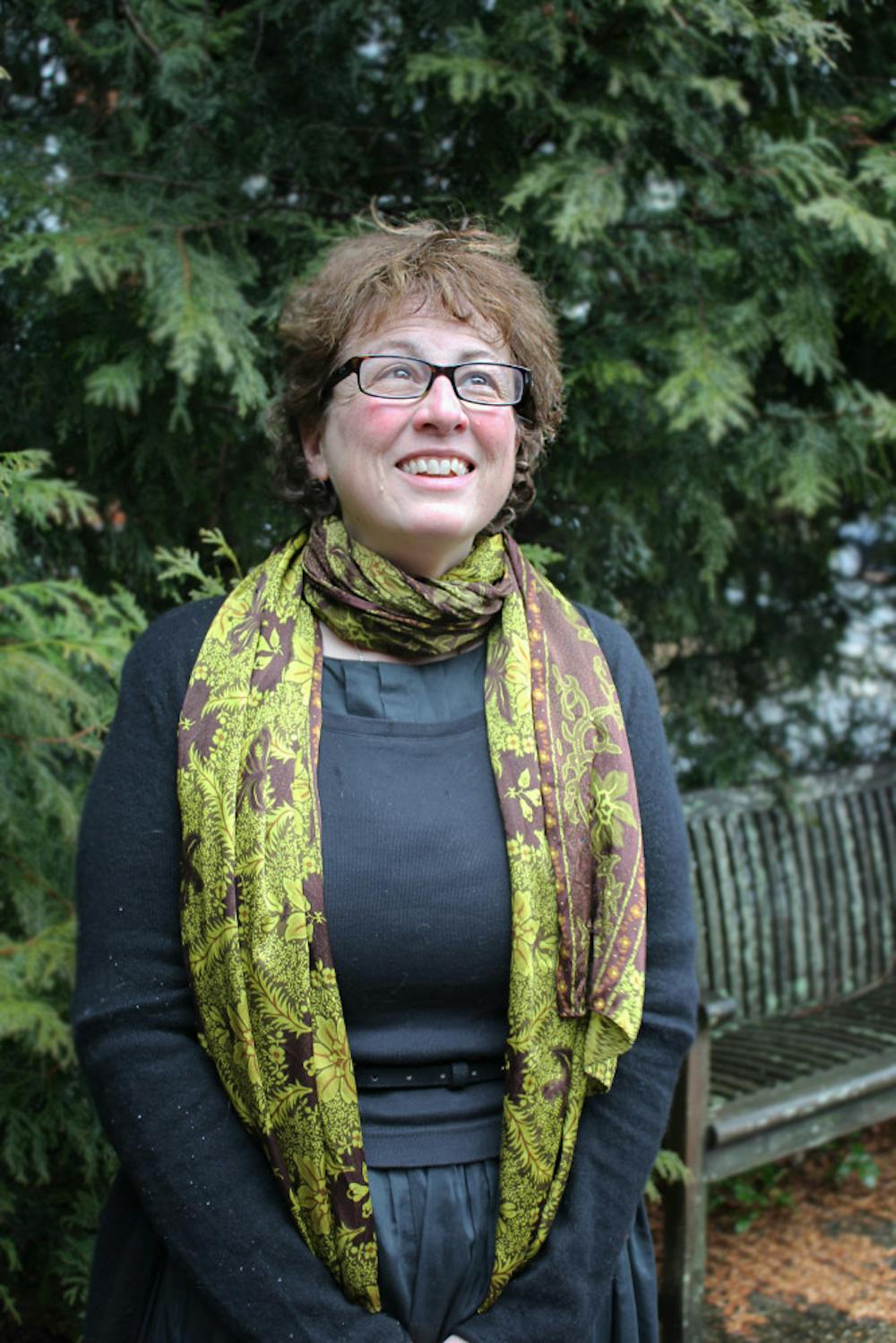For years, Professor Emily Hipchen planned on becoming a surgeon. But late last year, she was appointed director of Brown’s English Nonfiction Writing Program.
Hipchen joined Brown as the program’s director and a senior lecturer in English December 2019. Her appointment is the result of the first national search for a Nonfiction Writing Program position by the English Department, wrote Richard Rambuss, chair of the English department and professor of English, in an email to The Herald. The department was looking for an accomplished writer, versatile teacher and skillful administrator. “That’s asking for a lot, and we feel that we struck gold in landing Hipchen,” Rambuss added.
In addition to teaching, Hipchen founded and continues to edit the academic journal “Adoption and Culture,” which publishes scholarly work on the subject of adoption. Hipchen’s expertise in adoption studies is “foundational to this developing new field,” Rambuss wrote.
Hipchen knew that she wanted to teach at Brown after sitting in on a ENGL 1050E: “Sportswriting” class taught by Jonathan Readey, lecturer in English and associate director of the Nonfiction Writing Program. “I walked away from (Readey’s) class wanting to learn tennis … and wanting to teach here,” Hipchen said. While writing courses at the University of West Georgia — where Hipchen taught for 14 years before coming to Brown — instruct students in how to argue effectively and write essays, Brown offers a more diverse selection of writing courses that can help students become better writers in a wide variety of fields, Hipchen added. As Brown connects areas of journalism, creative nonfiction and digital nonfiction through the structure of the program, “it’s really nowhere that people do this (kind of writing program). It’s completely unique,” she said.
Until her junior year of college, Hipchen wanted to be a thoracic surgeon. When she became apprehensive of how the high mortality rate of surgery would change her as a person, she decided to study English instead.
Hipchen’s specific passion for nonfiction surfaced years later, when she began writing in order to deal with the disorienting experience of meeting her birth parents. In less than a year, she had written a memoir. “I don’t read fiction anymore because it feels like it doesn’t challenge itself enough for me in its representations. I’m much more interested in how you say a truth about the world,” she said.
Hipchen now teaches students how to create content out of intimate experiences in her class ENGL 1050Q: “Writing the Family.” To be considered for this writing workshop, prospective students had to write about a family secret. Hipchen promised to shred the secrets of any student who did not ultimately take the class.
Kyoko Leaman ’23, who is taking Hipchen’s class, recommends it to anyone who gets the chance. “She’s so nice, and she’s so cool, too,” Leaman said. Hipchen’s feedback is a “compassionate acknowledgment of the personal nature of (“Writing the Family”), without any judgment,” she added. After submitting her writing sample for the class, Leaman described receiving a page-long letter of observations and recommendations about her piece.
While Hipchen does not yet have a specific plan for the direction of the English nonfiction program, she “wants the vision to come from people who are already in or dedicated to the program,” she said.
Hipchen is aware that there is longstanding pressure on the program to provide more instruction, and is certain that people already in the program are working on this challenge.
The English department is trying to offer more sections to accommodate the increasing number of interested students while maintaining small class sizes, Readey said. “We want to maintain the seminar feeling, so that students can get one-on-one attention,” he added. Writing classes are often capped at between 17 and 20 students. Readey often tells his advisees that it may be tricky to get into introductory nonfiction writing classes due to their popularity, but the intermediate ones may be more “doable,” as instructors may be willing to waive some prerequisites.
Bria Metzger ’20, who is concentrating in English nonfiction, says that the class limits and writing samples are intimidating, but all the professors she has encountered have been accommodating. “I absolutely love the nonfiction department,” Metzger wrote in an email to The Herald. “Every class is such a rich experience that pushes me as a writer in ways I wouldn’t be able to grow on my own.”
Many students get intimidated by the long waiting lists and writing samples and move on to other classes too quickly, Metzger wrote. If students show genuine interest and are persistent, some professors may accept numbers beyond their limit on Courses@Brown, she added.
According to Metzger, the most difficult thing about studying nonfiction writing is that many nonfiction classes seem to occur at similar times, causing schedule conflicts for students who wish to take multiple classes in the program at the same time.
Readey mentioned that it is an exciting time for the creative nonfiction department and that the founders are now moving toward retirement, paving the way for new possibilities.
The team is responding well to Hipchen’s “kindness and enthusiasm,” according to Readey. She has a “galvanizing presence,” and “is an incredibly wonderful colleague,” he added. “We’re lucky and grateful that she came.”
“It’s so good to be here. I really like it. It feels like a good start,” Hipchen said.





